
The regions HSC offers busing from are:
Additional notes: HSC 's transportation program offers multiple trips and destinations daily for our students. Main -route transportation meets our parents and students needs across a broad catchment area. Please contact admissions at [email protected] to learn more.
How we see Hillfield Strathallan College
The 50-page review of Hillfield Strathallan College is part of our series of in-depth accounts of Canada's leading private schools. It provides a unique and objective perspective on the school's academics, programs, culture, and community.
Read our in-depth reviewCompare with:
How Hillfield Strathallan College sees itself
"Established in 1901, HSC is a leading co-educational school where children 18 months to 18 years learn with joy and live with purpose. We prepare students to understand their world, inspire, lead, and make a difference in their own unique ways. Our outstanding academic programs are shaped by student inquiry. Expert faculty deliver a curriculum that ignites curiosity and encourages students to explore their full potential through wide-ranging co-curricular activities in the arts, athletics, service and leadership."
"HSC is proud of the work that has been done to implement a pedagogical approach to personalized, authentic learning across all four schools. Project-based learning and inquiry are a regular part of academic programming at the College, and students are often asked to find solutions to engaging, driving questions as they explore the required curriculum. Learning at HSC is a hands-on experience designed to ignite joy and passion for discovery."
"HSC students have the courage and confidence to take risks to achieve their goals. They are community-minded and curious about the world around them. HSC students have a growth mindset. They are empowered learners who are self-motivated to engage in their educational journey through their interests and passions. HSC students are self- and socially aware and show interest in enacting positive change in the world. They are environmentally conscientious and value their connections to family, friends and community."
"Families seeking a highly competitive environment and/or strict discipline model may not find the learning environment at HSC to be the right fit."
"Families chose HSC because we provide a consistent and complete educational journey for students from 18 months to 18 years and beyond. Being able to attend one school for Early Education, Middle and Senior years is a significant benefit, and provides a shared familiarity between faculty and students that allows a true understanding of the student's needs and parent partnership. Our College is built upon the referrals of our families and the alumni who return to us with the next generation. Our community, which stretches across borders, remains proud in their affiliation, and giving of their time and treasure to ensure the legacy of HSC."
"HSC is well known for it's expansive campus and well appointed facilities as well as it's engaged and community-minded student body."
"HSC's transportation system is a valuable part of College life and makes it easy for students to participate in our wide range of after-school programs. With two evening bus runs, at 3:30 p.m. and 5:00 p.m. HSC families are rest assured that their child can take advantage of clubs, sports and other group work without the stress of scheduling pick-ups."
"HSC has a deeply engrained respect for the environment and commitment to sustainable practices. From electric buses to solar panels powering our electric grid, HSC is committed to mitigating impacts and operating sustainably. Our environmental ethos trickles down to student learning, such as with the Garden Curriculum in Junior School, the College-wide Green Team initiative, and HSC's outdoor learning landscape that connects students to the natural world around us."
"HSC has recently invested in an expansive solar array installed on the roof of the Senior School to reinforce HSC's sustainability goal of being carbon neutral by 2030 and carbon negative by 2050. We have also invested in expanding our wellbeing supports for students, adding a dedicated social worker and chair of student wellbeing to our health services team."


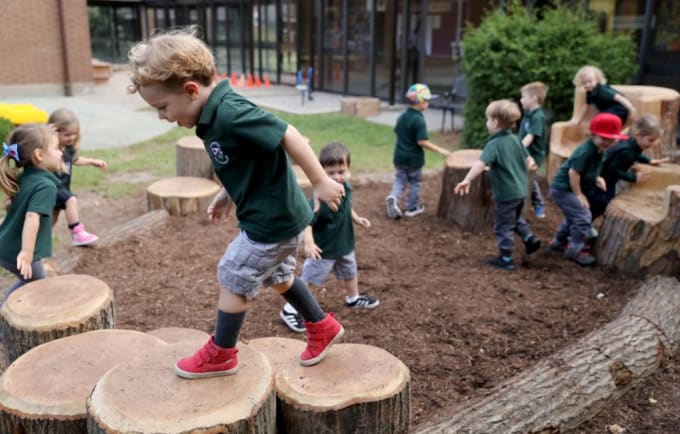
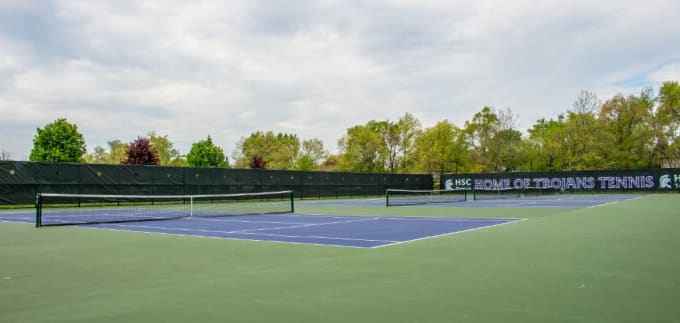






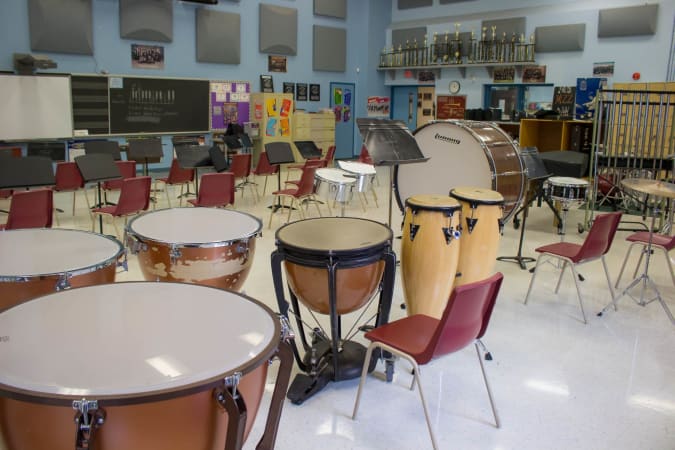



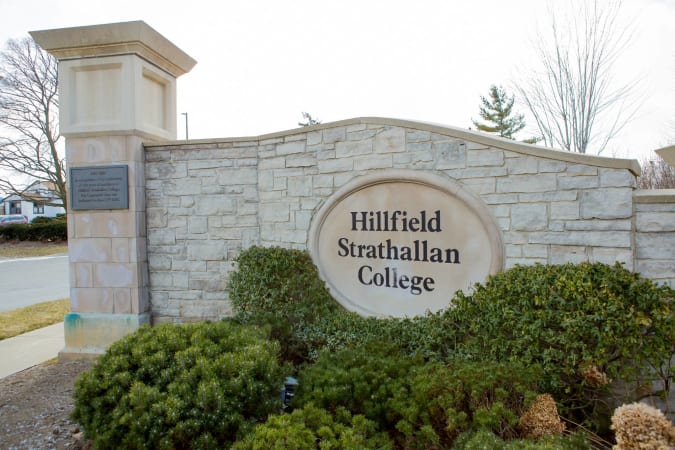
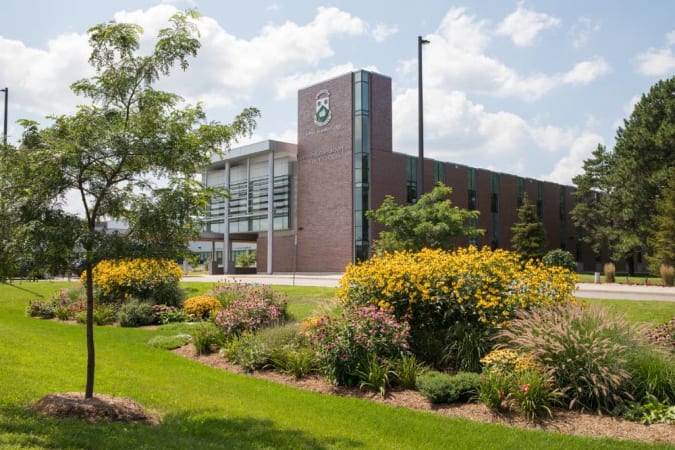
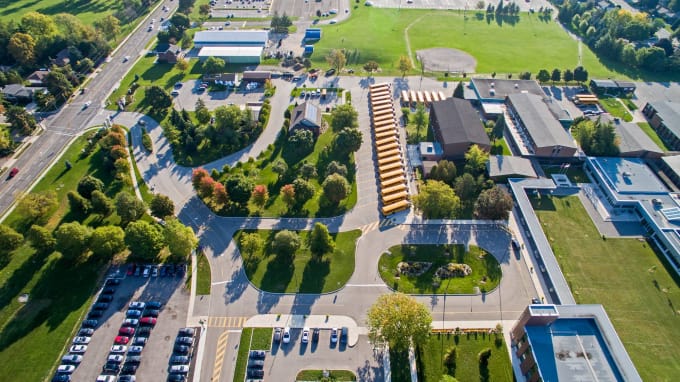





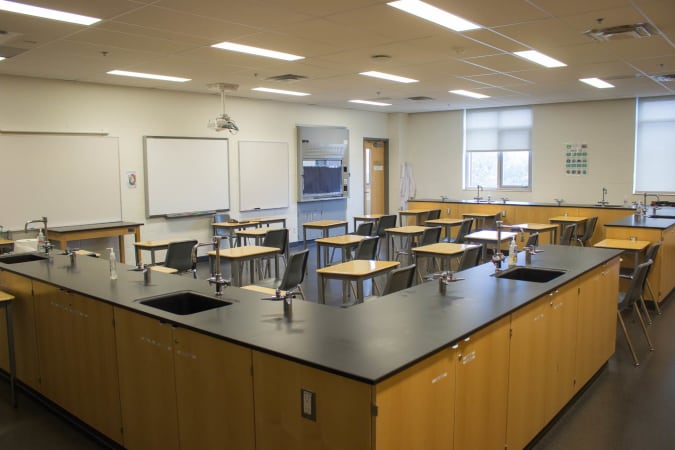



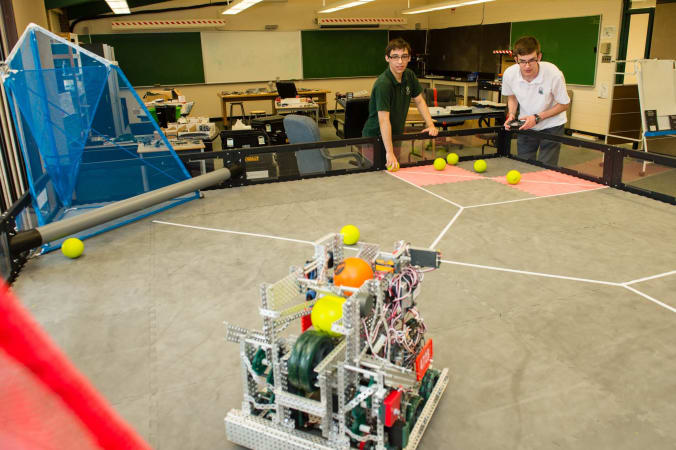

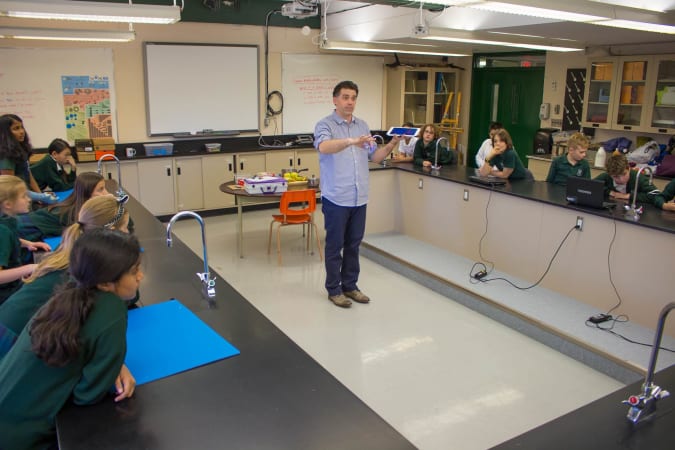



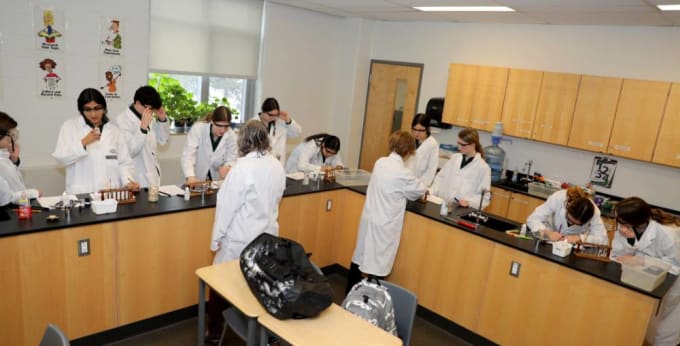

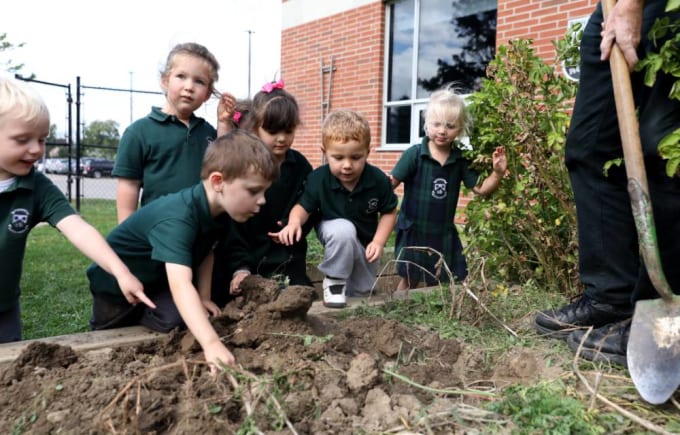



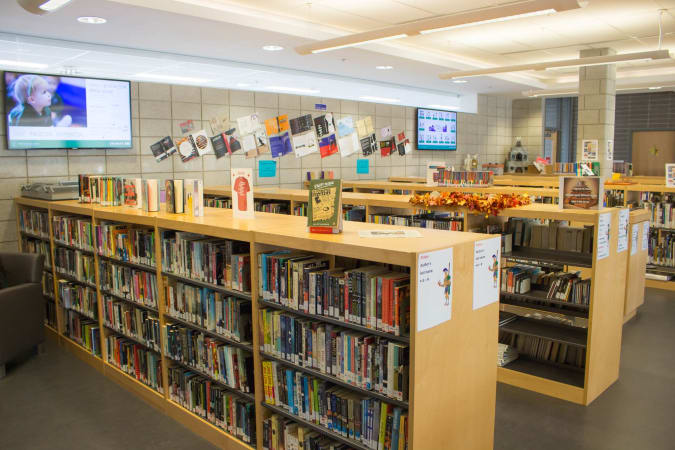
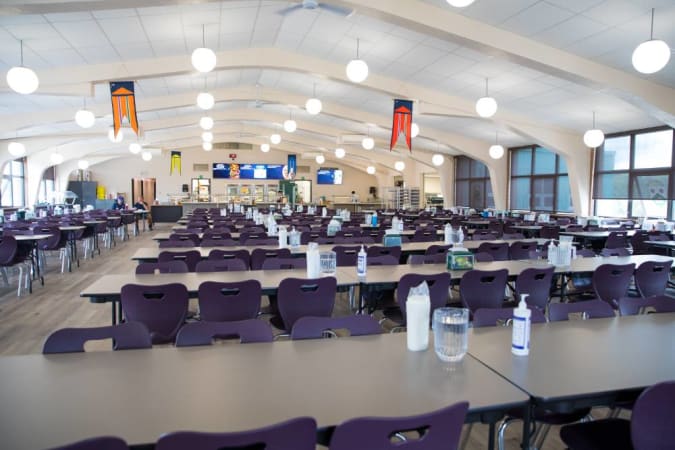
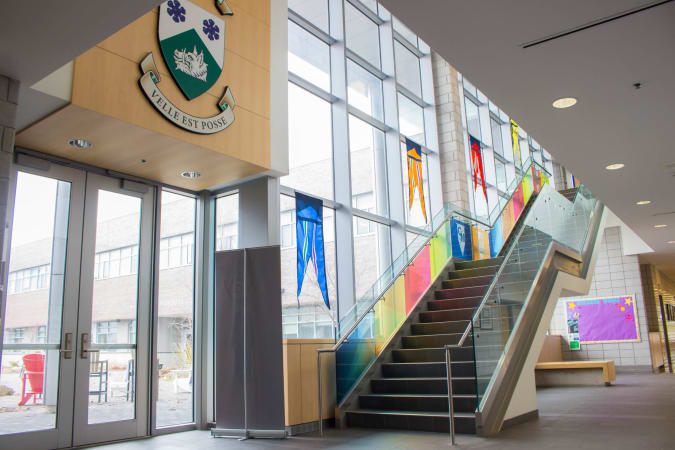




How people from the school’s community see Hillfield Strathallan College
Top-down influence on the school’s direction and tone

Mr. Marc Ayotte, Head of College
Welcome to HSC
Welcome to Hillfield Strathallan College—a community where children and their learning are at the forefront. Each child is known, challenged to do their best, and supported in that pursuit. We believe the best education of any child is achieved through a partnership between the school and the family, with the shared goal of helping students to achieve their full potential.
HSC consists of four small schools united by a common commitment to a shared Mission and Ideals. We are committed to ensuring a balance between the development of student independence and guidance from a caring faculty, sensitive to the age and stage of the student. We aim to develop students who ask great questions, are resilient problem-solvers and are connected to the wider world. All students learn differently, and we make every effort to address individual learning needs and styles.
True learning occurs when curriculum is meaningful and relevant, and we believe learning is not restricted to the classroom. Students who are most successful in university and beyond are those who are engaged fully in a rich program of co-curricular offerings, in addition to a solid academic program. HSC students discover and follow their passions, whether they lie in academics, athletics, fine arts, outdoor education or community service. Through shared experiences, the close-knit HSC community helps students bond with their classmates and teachers for life.
Please explore our site to learn a bit more about the incredible opportunities available at HSC. However, the true flavour of the HSC experience can only be gained by paying us a visit. You will see engaged and happy learners, students and faculty working together, students pursuing their dreams on the fields, in the gymnasia and in the theatre, or simply enjoying on another's company in the dining hall. I hope you will join us to discover what makes Hillfield Strathallan College such an amazing place.
Marc Ayotte
Head of College
Most big schools provide your extroverted child with plenty of social opportunities and the ability to interact with different peer groups with a wide range of personalities, interests, values, etc. A larger student population and more extracurriculars—including activities like team sports, arts programs, and debate—will give them a broader scope of opportunities to participate in events that scratch their interpersonal itch. “This may also give them the opportunity to hone certain skills,” say Ann and Karen Wolff of Wolff Educational Services. “For instance, they might run for student council to develop leadership and public speaking skills and learn to be a voice for other students.”
Make sure any prospective school, no matter what size, provides the right social environment to help your child feel at home, make friends, and develop confidence. This is especially important at big schools, which are sometimes more socially overwhelming and challenging for an introvert to find their bearings in. Of course, “Because larger schools usually have a more diverse student population, introverted kids are more likely to find a small group of people like them, a peer group they can relate to and find acceptance from,” says Dona Matthews, Toronto-based education consultant and co-author (with Joanne Foster) of Beyond Intelligence.
Bigger schools often have a broader scope of extracurricular activities, which is another way to help your child meet the right group of friends. “This may also give them the opportunity to develop certain skills,” say Ann and Karen Wolff of Wolff Educational Services. “For instance, they might run for student council to develop leadership and public speaking skills and learn to be a voice for other students. Remember, though, each child is different—so what works for one may not work for another.”
THE OUR KIDS REPORT: Hillfield Strathallan College
Next steps to continue your research:
Continue researching Hillfield Strathallan College with OurKids.net, or visit school website.